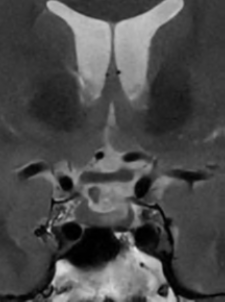Reasons you may need a CT Scan
From high resolution imaging of the brain to image guided spinal injections for pain management, there are plenty of reasons for patients to undergo a CT scan. To help decide whether a CT is the correct course of action for you, we will highlight some of the more prominent reasons for this procedure.
CT scanners are a versatile diagnostic tool, utilised by our team to assist in a multitude of diagnostic and treatment pathways. They are the gold standard for bone imaging and can be performed in a very short amount of time. They complement the soft tissue detail achieved in a longer MRI scan and your doctor will decide whether one or both scans are required.
The ability of CT imaging to provide high resolution body images allows our doctors to use the CT scanner as a diagnostic tool during procedures .e.g. nerve root injections/Lumbar punctures, allowing the doctor to inject the medication within millimetres of the desired location, effectively treating patient’s pain.
What is a CT Scan?
Before we get started, it is important for you to understand exactly what a CT scan is.
CT or CAT scan stands for Computerised Aided Tomography. The scanner combines X-rays and a computer to create detailed cross-sectional images. The scan, which is a non-invasive procedure, will be carried out by specially trained radiographers who will guide you through the process.
After entering the exam room, you will be asked to lay back on the scan table, it is at this point that the radiographer will tell you what is required for the examination, e.g., you must keep still, or to follow simple breathing instructions. The table will then move you into position and the scanner will begin. After the images are obtained the radiographer will ensure the images are of diagnostic quality and then send them off to be reported by one of our specialists.
CT Myelogram
One specialist procedure that often utilises the CT scanners at Queen Square Imaging Centre is the CT Myelogram. This is a diagnostic test that is performed to assess lining of the spinal canal, specifically assessing the dura for any Cerebrospinal fluid leaks (CSF). These tests are usually proceeded by an MRI scan to ascertain if there is any evidence of a CSF leak.
If the consultant is suspicious of a leak, the patient may then by send for a CT Myelogram which is specialist exam used to locate the exact location of the CSF leak. A CT Myelogram is an invasive procedure performed by a specialist doctor and will require a 2 hour recovery time post procedure. This is a day case, so you will be able to go home after the 2 hours recovery period.
Lung Health Assessment
One of the many benefits of a CT scan is its ability to screen patients and identify any potential sign of Lung Cancer or other lung pathology, as evidence shows that early detection and treatment improves the outcome for the patient. As a result, patients are now being offered lung health checks through a low-dose CT (LDCT) scan. A doctor will assess an individual’s risk factors and suitability which may be often in conjunction with simple physical examination.
LDCTs are quick, non-invasive, painless procedures that will produce highly detailed cross-sectional images of the lung to help the consultant determine if there are any early signs of lung disease that may not have been picked up on a traditional chest X-ray. The specificity of CT scans allows healthcare professionals to locate, diagnose and begin targeted treatment sooner, increase the likelihood of a successful outcome.
CT Guided Injections
If you are experiencing leg or lower back pain, your doctor may determine that the cause of your pain stems from a pinched nerve root or joint irritation. This may arise from a disc pushing on the nerve or from associated swelling around the nerve and joint of the spine.
Once determined that this is the cause of your pain, your doctor can refer you for a CT guided injection. This is performed to temporarily numb the spinal nerve under suspicion and help to identify the exact source of your pain. This can also be used as treatment to reduce irritation and swelling around the nerve for pain relief.
At the Queen Square Imaging Centre, our team of specialist neuroradiology consultants undertake nerve root injections using pictures produced in a CT scanner. Using high-quality CT guidance, our radiologists can navigate the structures around the nerve and guide the injection into the exact area that is suspected/proven to be the cause of your pain, allowing for accuracy and a reduction of risk in comparison to injections that are performed ‘blind’.
CT Coronary Angiography
A CT Coronary Angiography is a diagnostic imaging test that allows specialist cardiothoracic radiology consultants t to study patients arteries that supply blood to the heart. During the test, the CT Scanner x-rays to create detailed cross-sectional 2D and 3D images of the heart and its blood vessels. The Consultant will then use these images to identify any abnormalities that may reveal the cause of symptoms such as chest pain or the early signs of coronary artery disease.
These are a list of the most prominent reasons that patients are referred to the Queen Square Imaging Centre to undergo a CT scan. The list is not exhaustive, with other reasons for using this scan including, but not limited to:
- To determine the location, size and shape of a tumour before having radiotherapy
- To allow a doctor to take a needle biopsy (where a small tissue sample is removed using a needle)
- To drain an abscess
To read about the procedures listed previously in the article, visit our dedicated CT page, where you’ll find further information on what the scan entails, how to prepare for your scan and what happens next.


